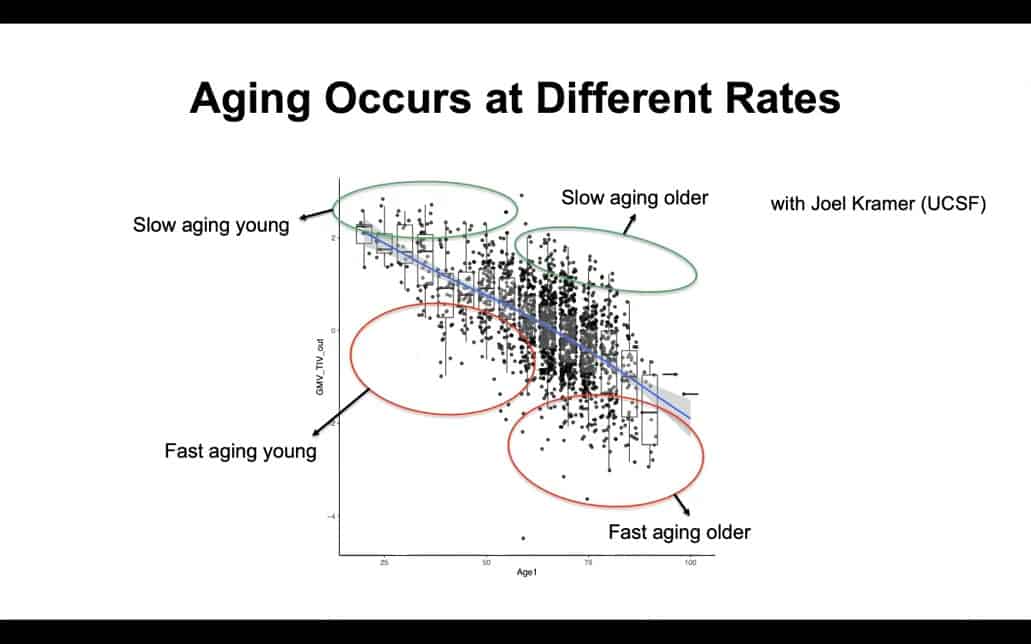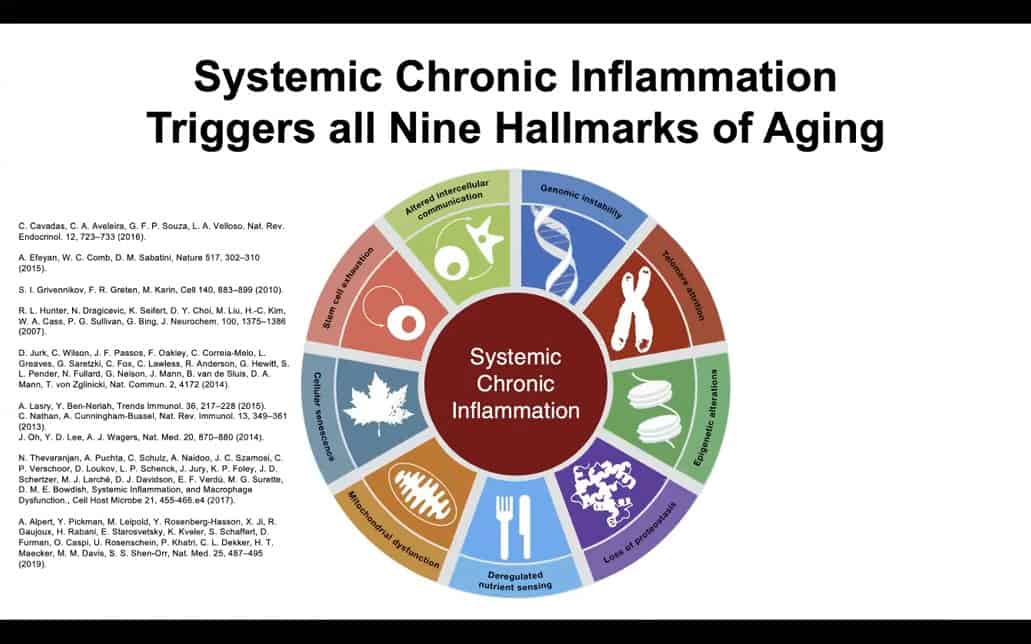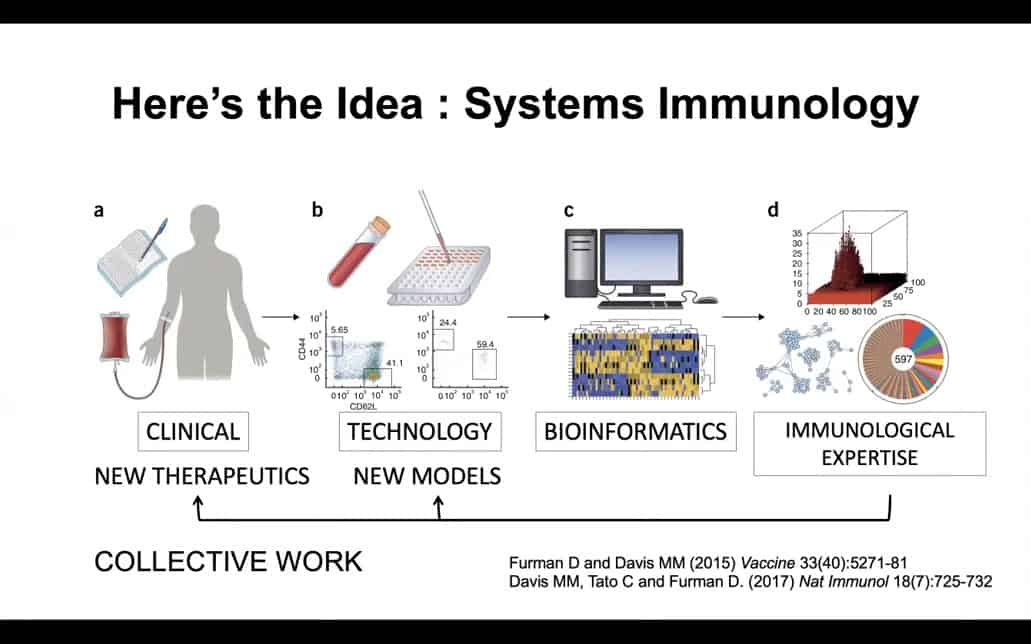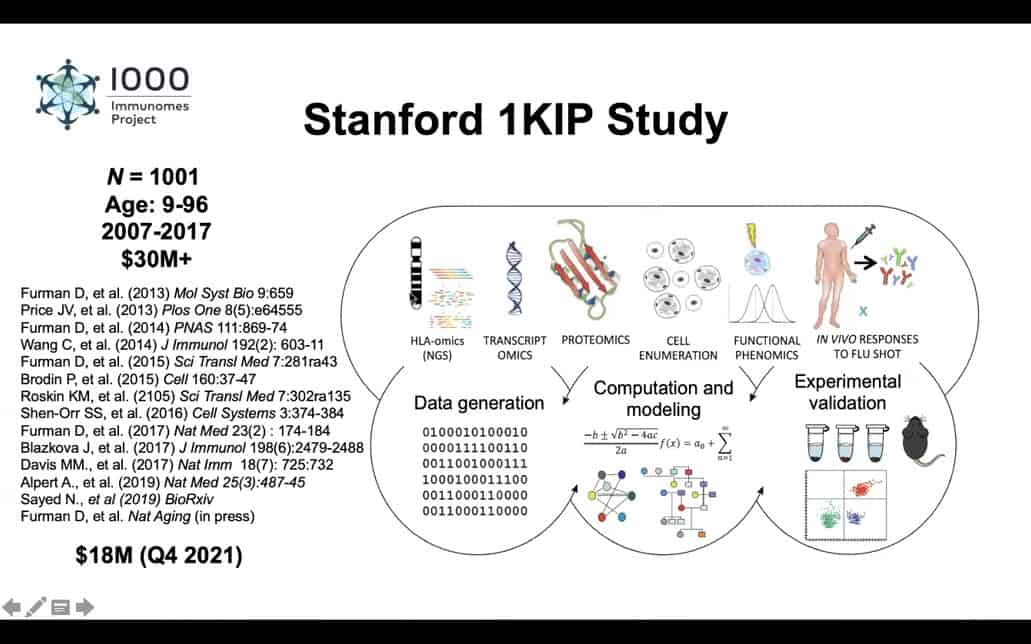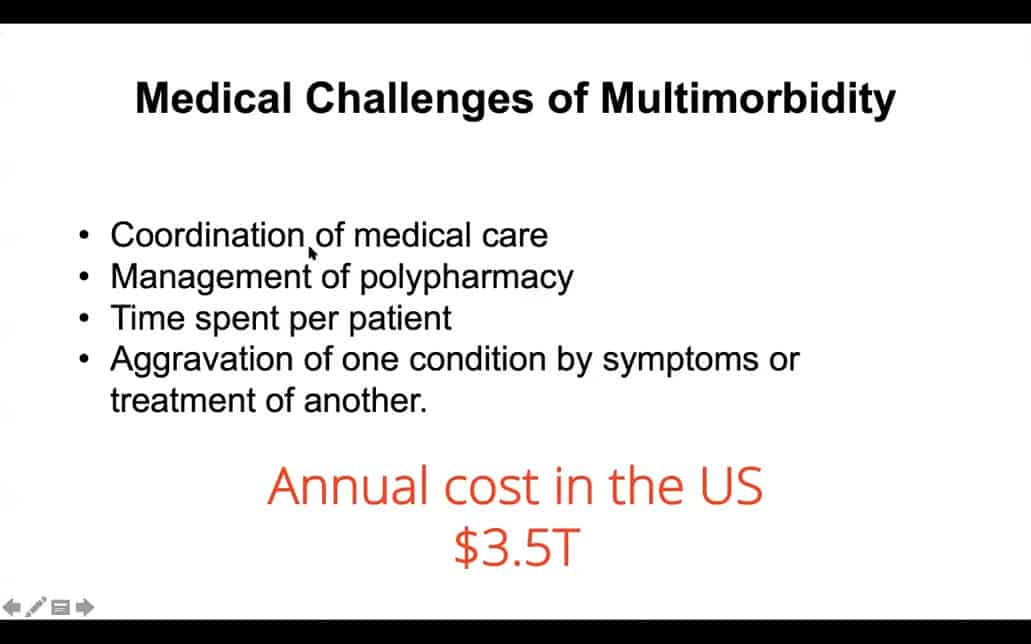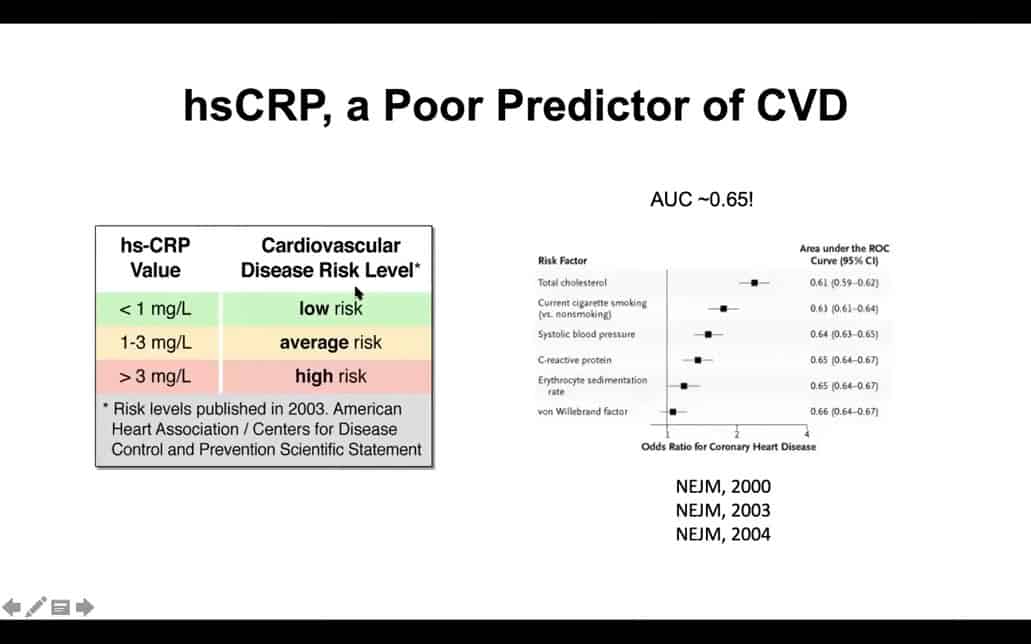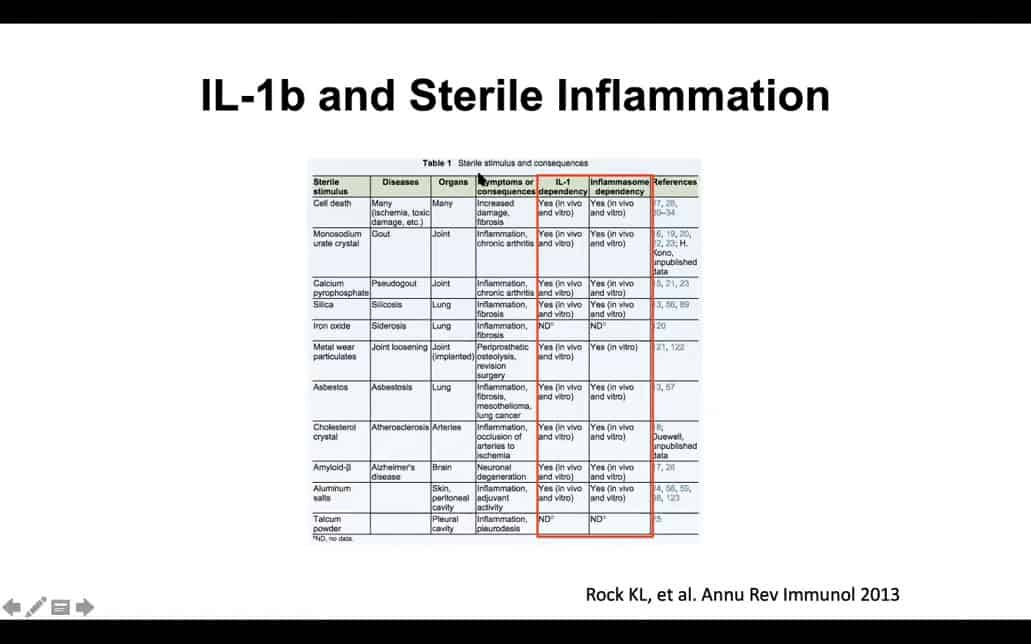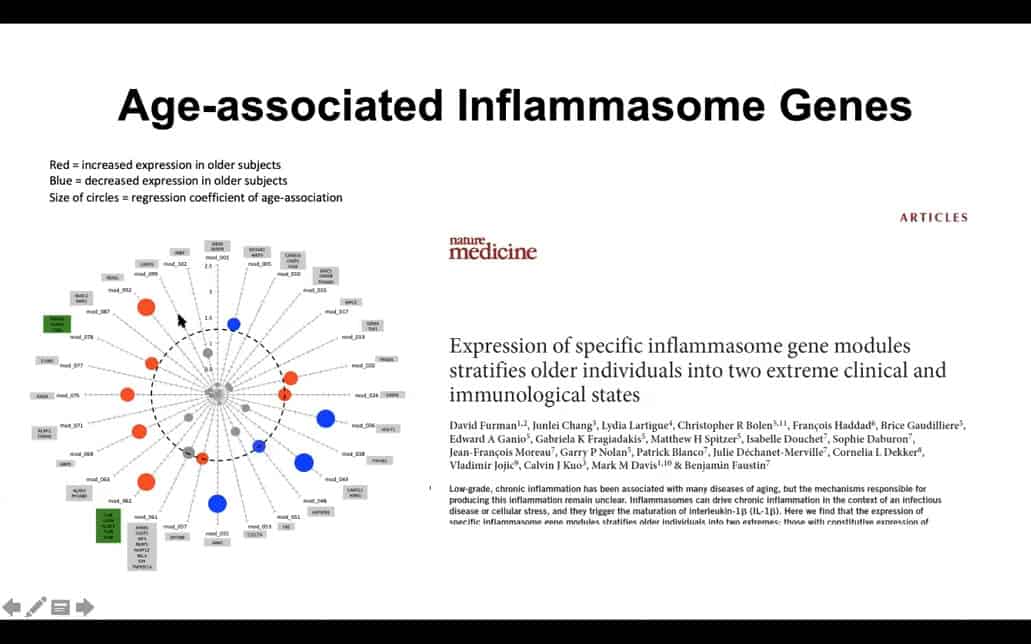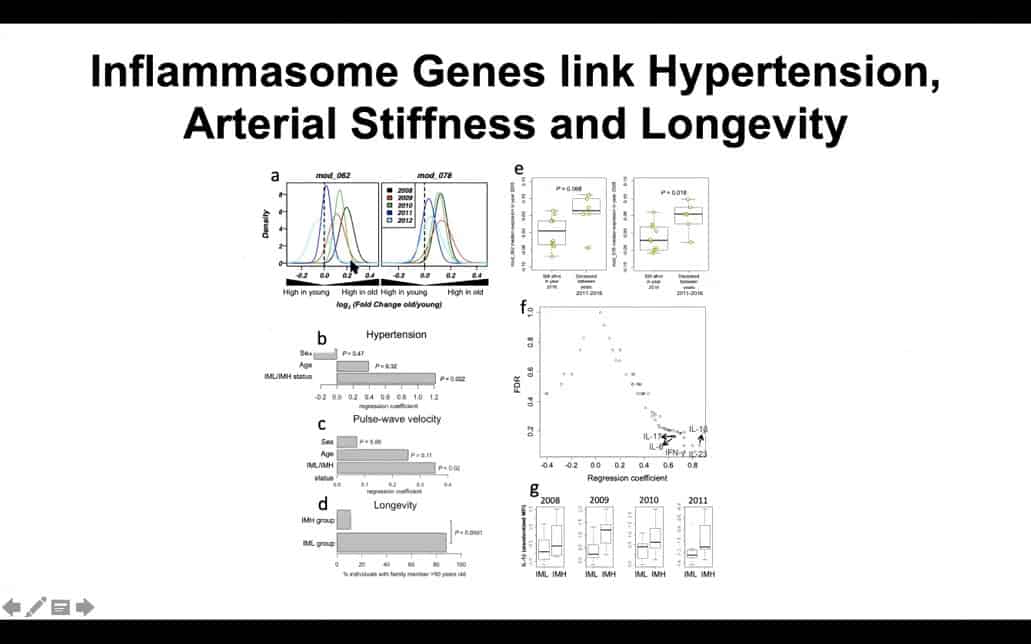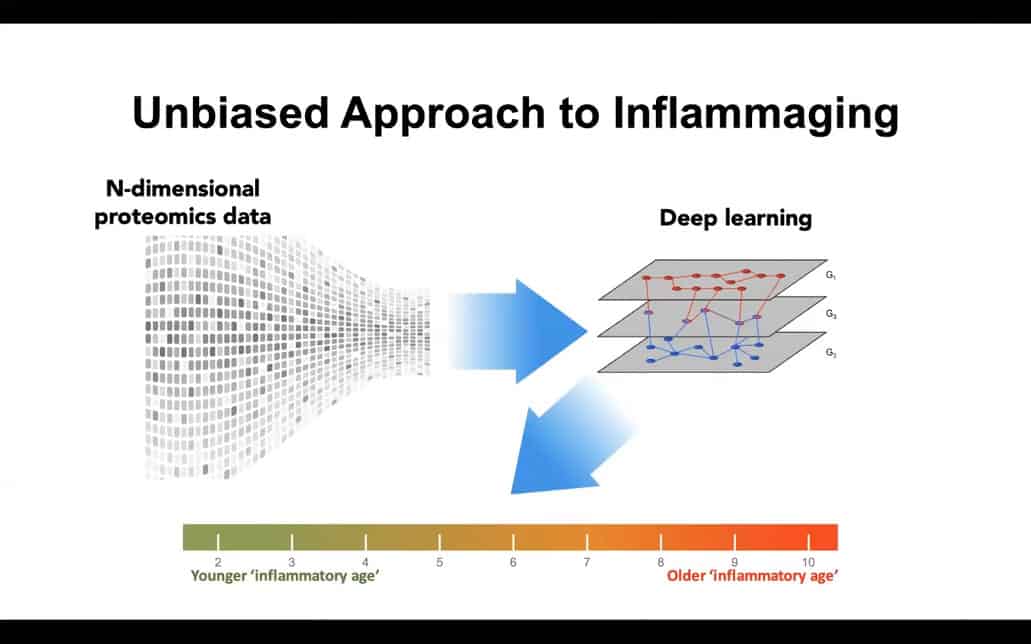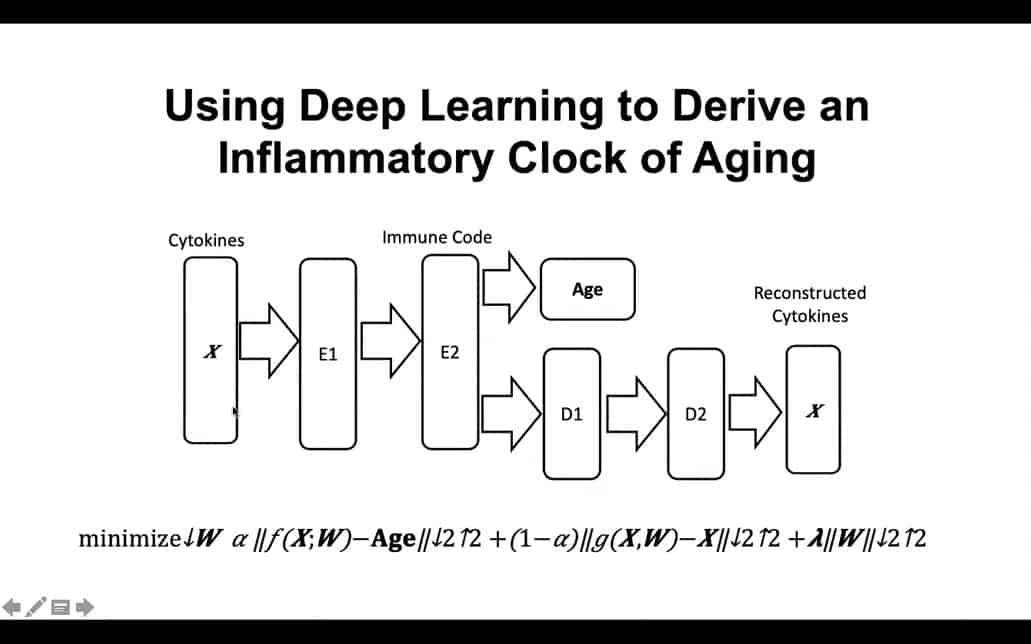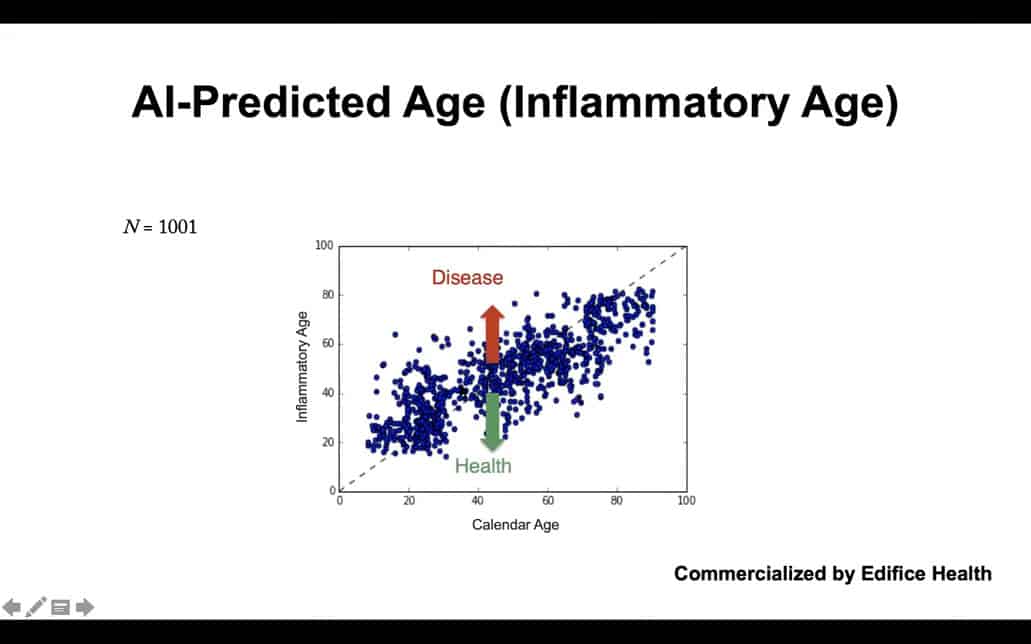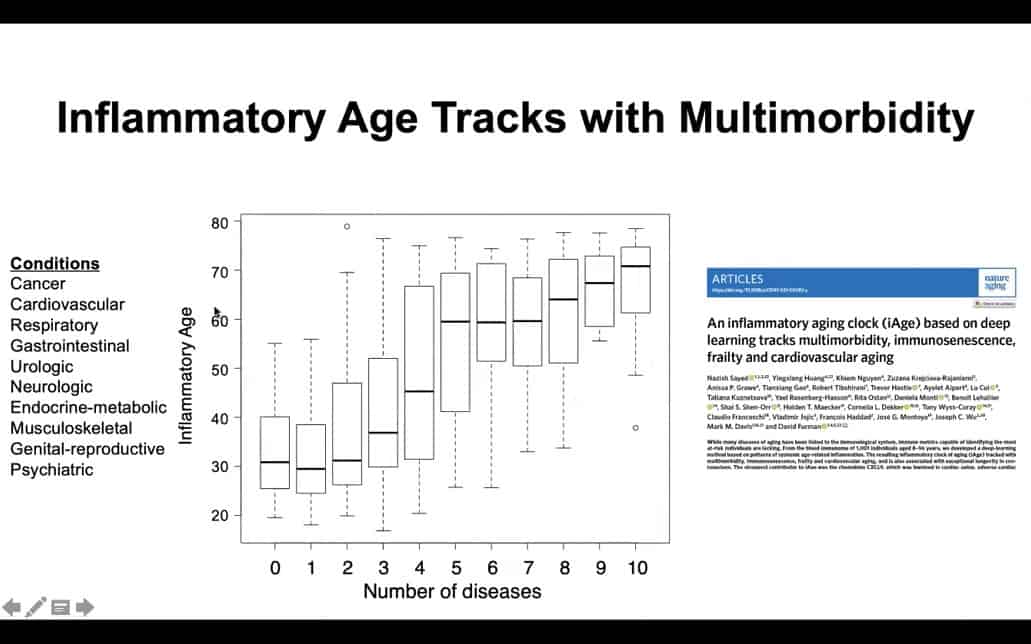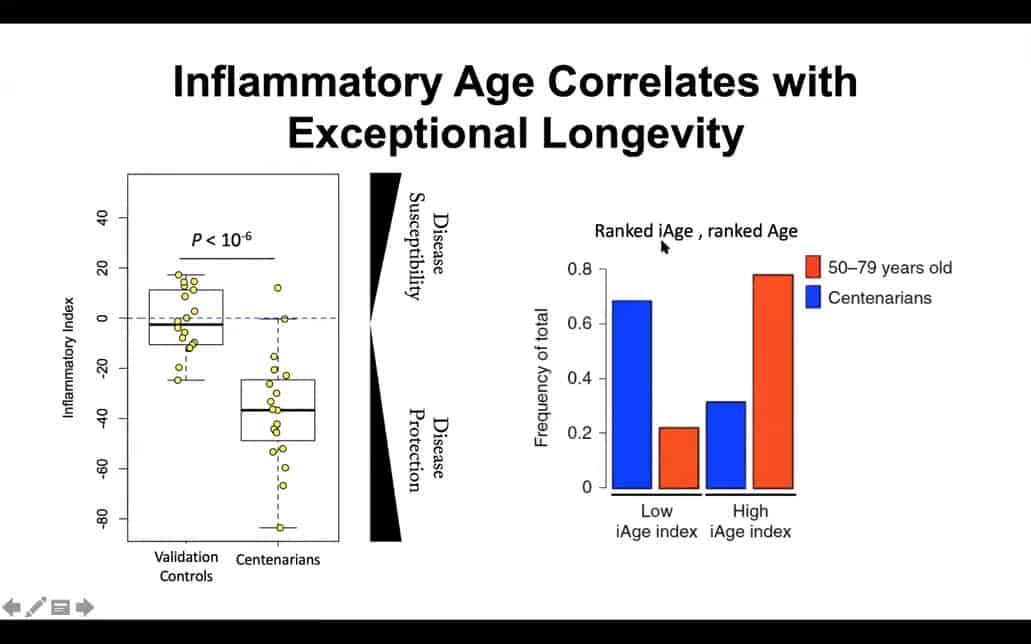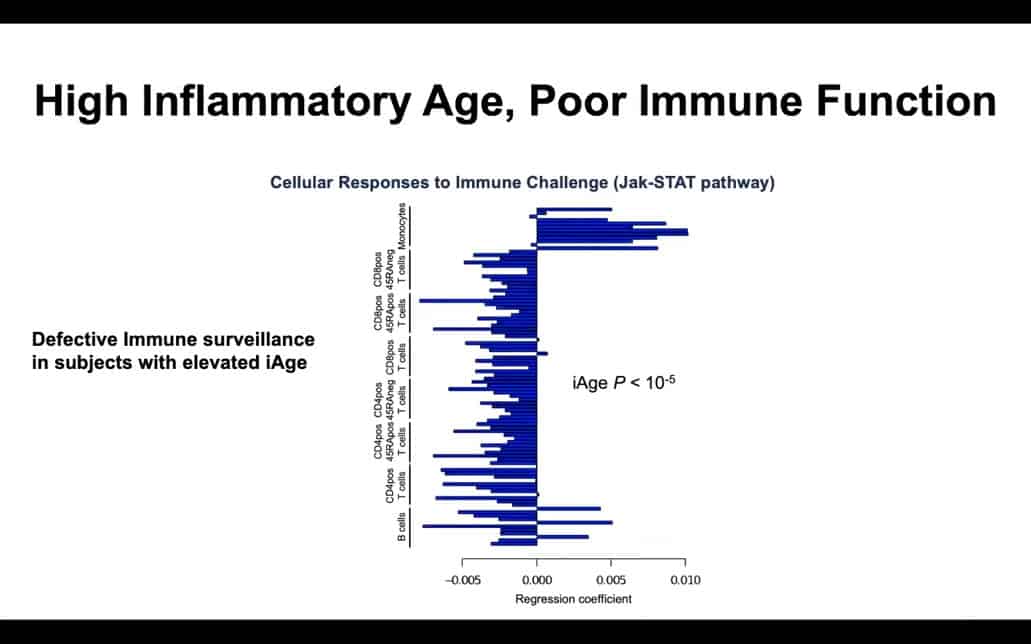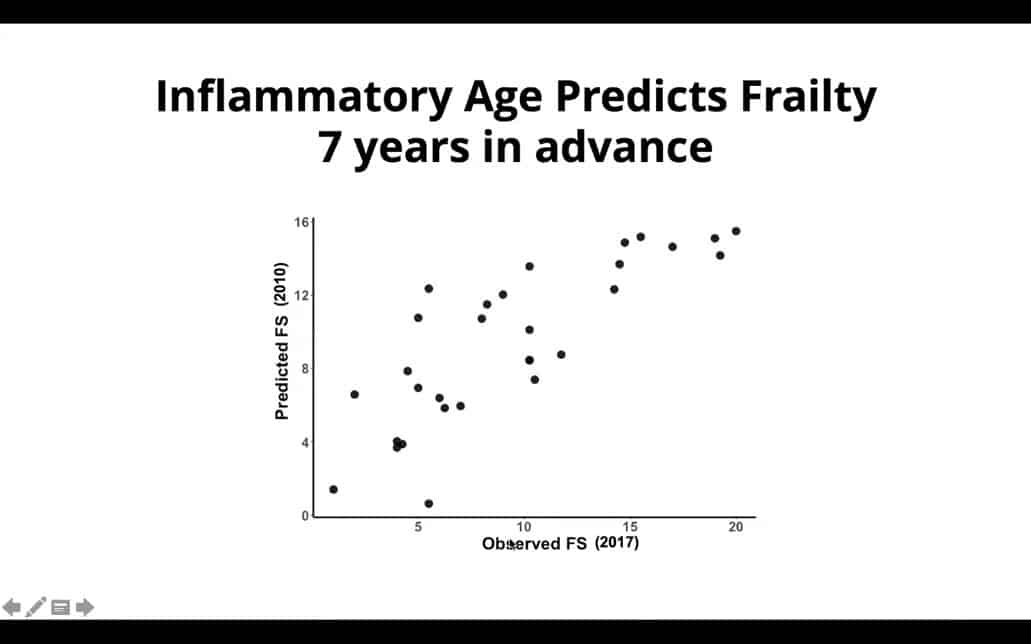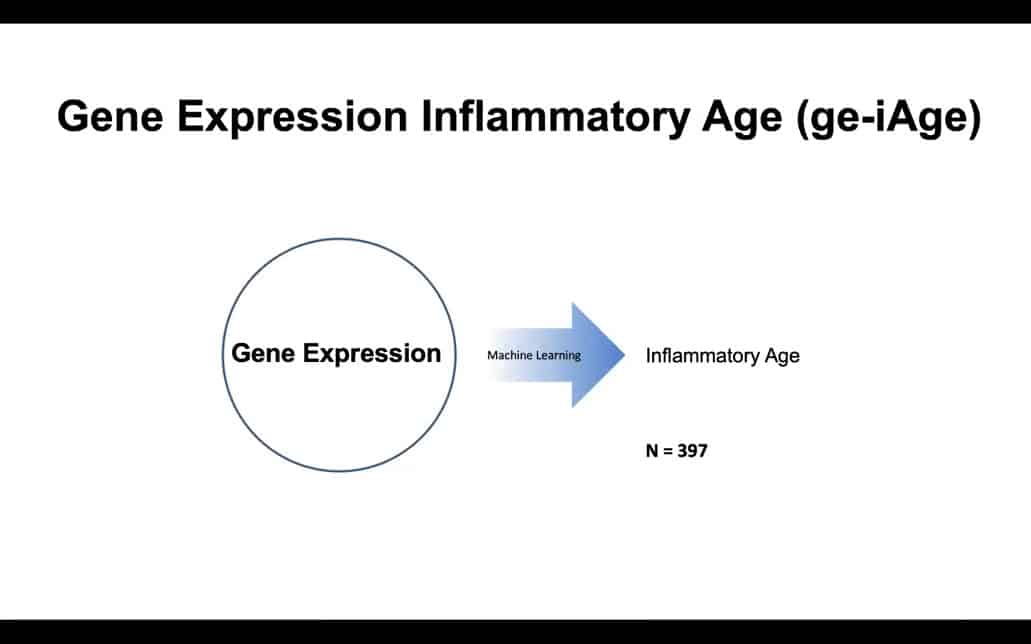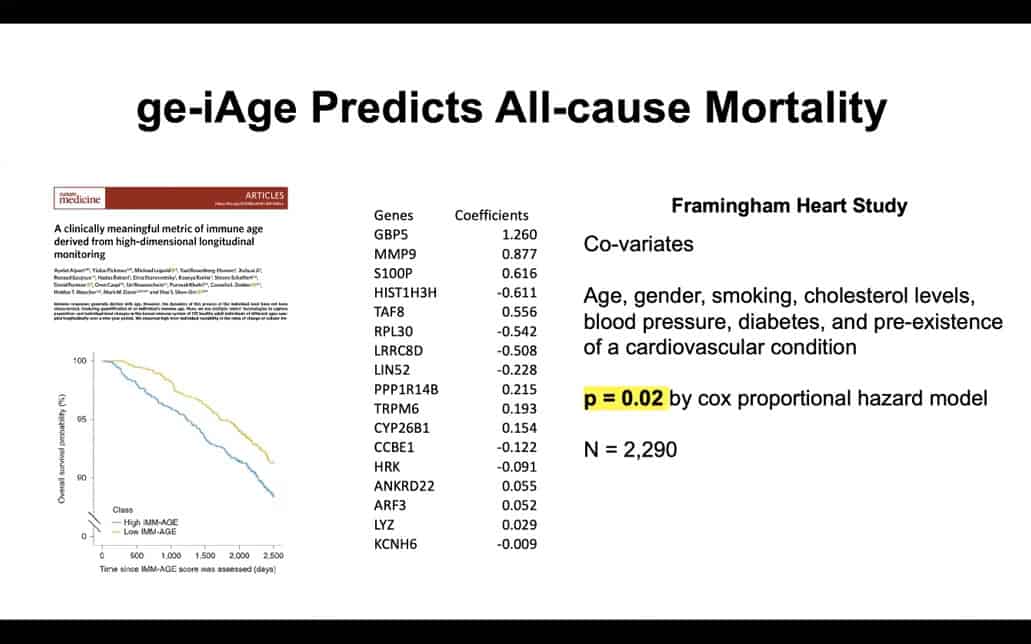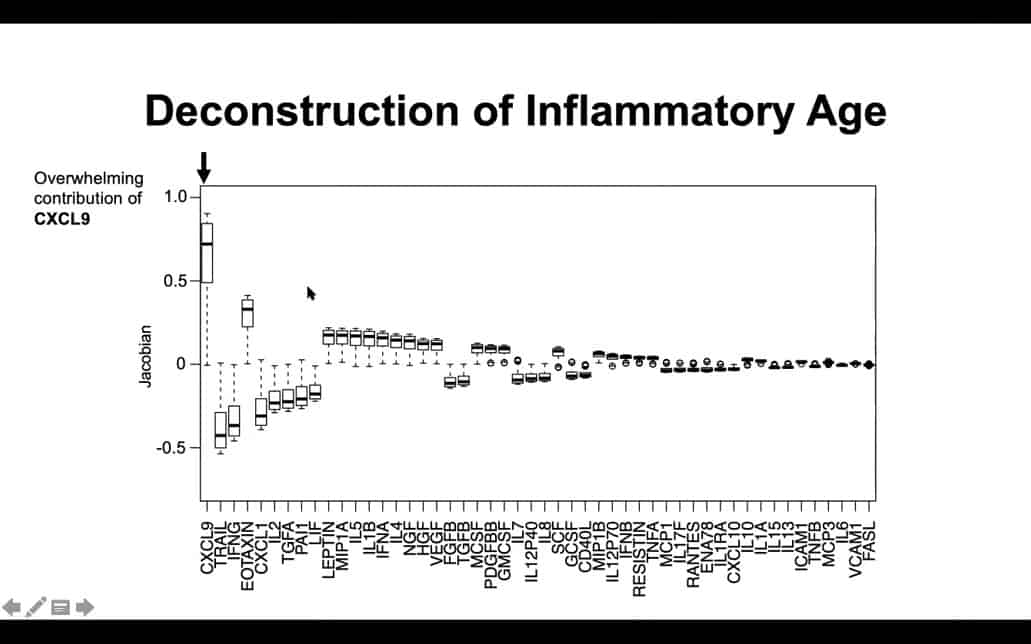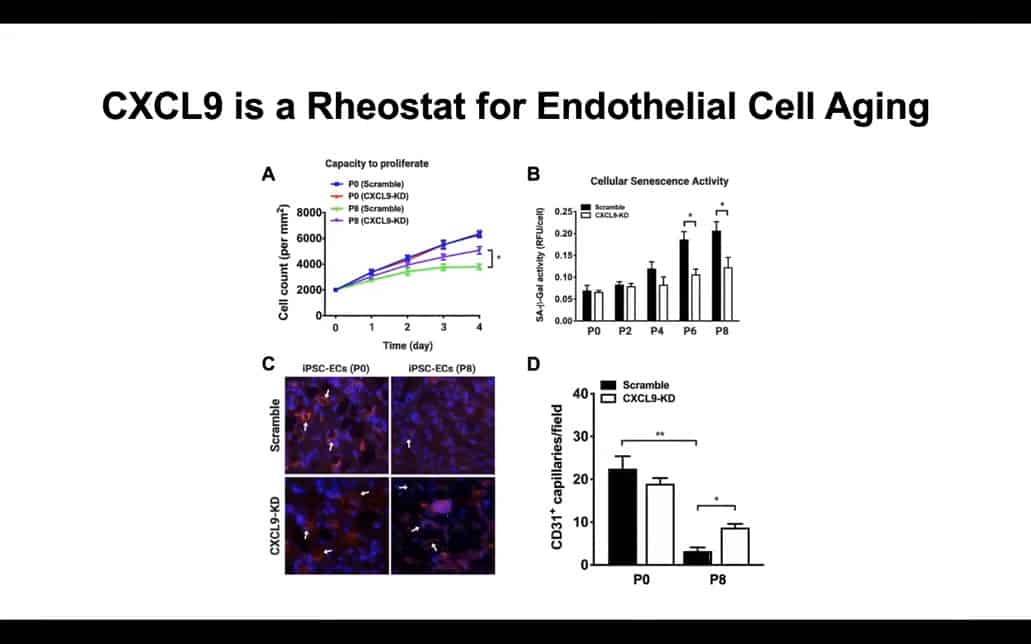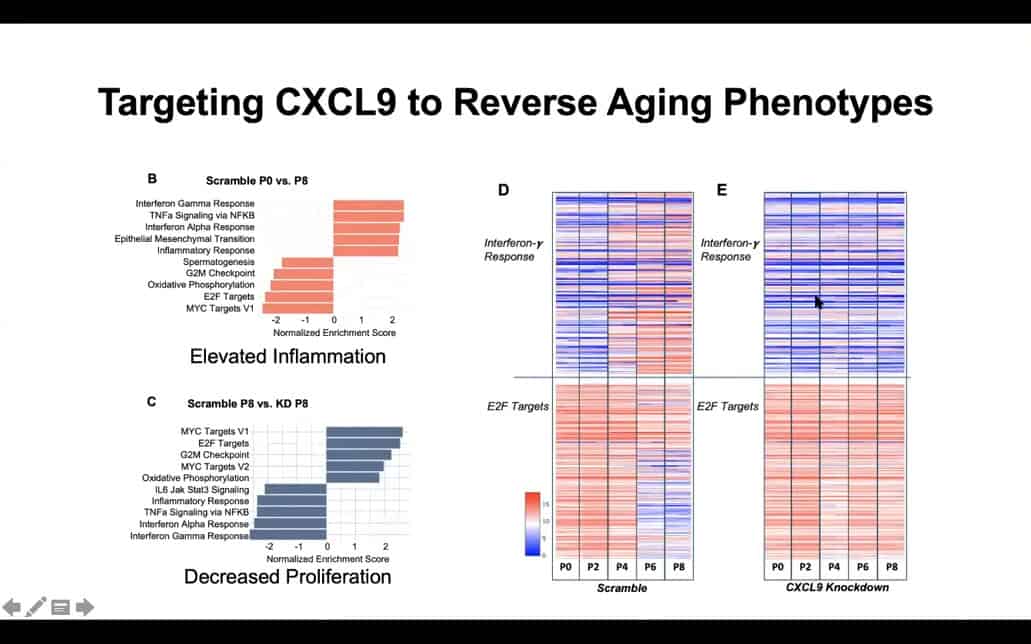Summary
David Furman describes the effect inflammation has on the aging process. Inflammaging – chronic inflammation which occurs as we age – takes center stage at the nexus of age related pathologies. A collaborative effort between the Buck Institute and Stanford reveals how inflammation can be measured and correlated with things like multimorbidity, aging, frailty, and all-cause mortality. Old biomarkers such as hsCRP are unreliable – interest has instead shifted to IL-1b and CXCL9.
Presenters

David Furman, Buck Institute
Dr. David Furman obtained his Doctoral degree in immunology (summa cum laude) from the School of Medicine, University of Buenos Aires, Argentina, for his work on cancer immune-surveillance. During his Postdoc at the laboratory of Professor Mark M Davis, (Stanford) he conducted cutting-edge research in Data Science and Systems Immunology to answer scientific questions with…
Presentation: Systems Immunology of Aging to Enable Precision Preventative Medicine
- Systems immunology of aging to enable position preventative medicine
- There is tremendous variability in aging.
- Systemic chronic inflammation is the hub of aging – it triggers all 9 hallmarks of aging. Inflammation appears to be linked with other types of diseases such as type 2 diabetes and metabolic disorders.
- Age and infection are intertwined.
- Systems immunology at Stanford includes a clinical team, bioinformatics, immunological expertise, and novel technology. The goal is to generate new models and new therapeutics.
- Multimorbidity is the highest priority for global health research. It is estimated that the annual cost in the US is $3.5 Trillion.
- Acute and chronic inflammation have different underlying mechanisms. One key feature of chronic inflammation is the lack of canonical standard biomarkers.
- hsCRP, a biomarker of chronic inflammation, is not a good predictor of aging or cardiovascular disease.
- IL-1b is a better biomarker for sterile (chronic) inflammation.
- Inflammasome gene modules are elevated in older adults and link hypertension, arterial stiffness, and longevity.
- A neural network was used to analyze cytokines for association with aging.
- Inflammatory age can predict multimorbidity.
- Although there is a lot of variability, it appears inflammatory age plays a role in achieving centenarian status.
- Looking at the Jak-Stat pathway, inflammatory age level was correlated with poor immune responses across the board.
- Inflammatory age predicts frailty 7 years in advance.
- Gene expression inflammatory age predicts all-cause mortality.
- The chemokine CXCL9 is heavily correlated with inflammatory age and endothelial cell aging.
Seminar summary by Aaron King.

